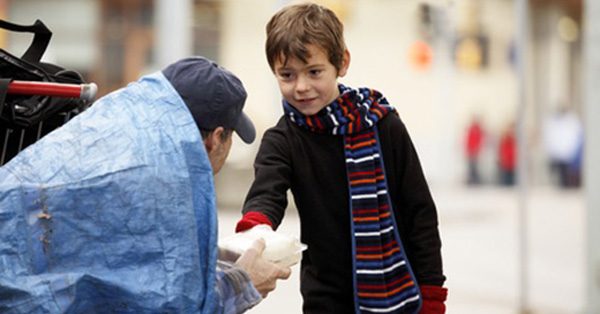As your oldest child begins to fill out her college application, it is hard not to feel a myriad of feelings. For the last four years she has thrown herself into her school work, taken AP classes, studied for the SAT, led the cheerleading squad, ran track and tutored kids at risk.
Yet as she lists her activities on the college applications, it becomes clear that all of her efforts are simply not enough when competing for a coveted university. She is a wonderful young woman, not the super human that colleges seem to only be admitting.
There’s some very good news though. A new report by Making Caring Common, a project of the Harvard Graduate School of Education, has taken a major step in changing the college admissions process to make it more humane, and less super-human.
To Get Into College, Harvard Report Advocates For Kindness Instead Of Overachieving
Parents, educators and college administrators have long wrestled with the unintended negative side effects of the admissions process, like the intense focus on personal achievement and the unfair advantages that tend to only benefit more affluent students. The report, entitled Turning the Tide: Inspiring Concern for Others and the Common Good Through College Admissions, aims to tackle these daunting issues. The report lays out a blueprint for addressing the biggest challenges facing college applicants today: the pressure of extreme academic performance, the emphasis on personal achievement over good citizenship, and the uneven opportunities available to students of varying income levels and backgrounds.
“Yes, we want students who have achieved in and out of the classroom, but we are also looking for things that are harder to quantify, [like] authentic intellectual engagement and a concern for others and the common good,” explains Jeremiah Quinlan, dean of undergraduate admissions at Yale University, one of the report’s endorsers.
In response to the report, Yale University decided to add an essay question on their applications that asks applicants “to reflect on engagement with and contribution to their family, community and/or the public good.” Yale will also “advocate for more flexibility in the extracurricular sections on both the Common Application and Coalition Application, so that colleges can more easily control how they ask students to list and reflect on their extracurricular involvement.”
More than 80 stakeholders, including admissions officers (like Harvard’s), deans, professors and high school counselors have endorsed the report.

Here are five highlights from the report, along with tips from Making Caring Common for how parents can support their student as they apply for college:
1. Reduce Stress
Help your teens by encouraging them to find activities, classes and volunteer experiences that are meaningful to them. When they find meaning, they have more fun and find joy in what they’re doing, and it diminishes stress.
2. Value The Different Ways Students Make Contributions To Their Families And Communities
If your child helps to run the household, babysits a younger sibling after school, or makes other significant family contributions, make sure they write about it on their applications. Take their real-world experience and apply it as an educational advantage.
3. Stress The Importance Of Authenticity
College admissions officers can tell when an application is not authentic or trumped up. Help your teen present themselves in their best light, while still staying true to who they really are. Help them share more vulnerably when it comes to what they care about, and as to why they chose a certain activity or path.
4. Alleviate Test Pressure
Discourage students from taking the same standardized test more than twice, as it rarely results in a meaningfully higher score. Remind them to simply do their best, trust the rest, and that this is good enough.
5. Engage In Meaningful Community Service
Help your teen find sustained community service opportunities that extend for a year or more. This helps the student be fully engaged in something that is important to them, and also allows them to have a meaningful long-term impact on the compassionate cause they’re working on. Community engagement looks different for everyone. It can encompass addressing local needs, to serving in a soup kitchen, to volunteering on a compassionate political campaign or making meaningful contributions to the elderly. Look for opportunities where teens can work side by side with the people they are helping, inspiring them to make a bigger difference.
Research consistently shows that for many students, service activities are an opportunity for maturity and growth, whether they are mandatory or driven by the college application process. Also, more often than not, colleges are looking for those students who are actively working to help make the world a better place, and by showing positive results from projects of kindness they’ve engaged in, their chances of being accepted rise dramatically.
“Kindness is the greatest wisdom.”
You are loved.
https://www.instagram.com/p/Bku6gYpjmqS/?taken-by=understanding_compassion


















